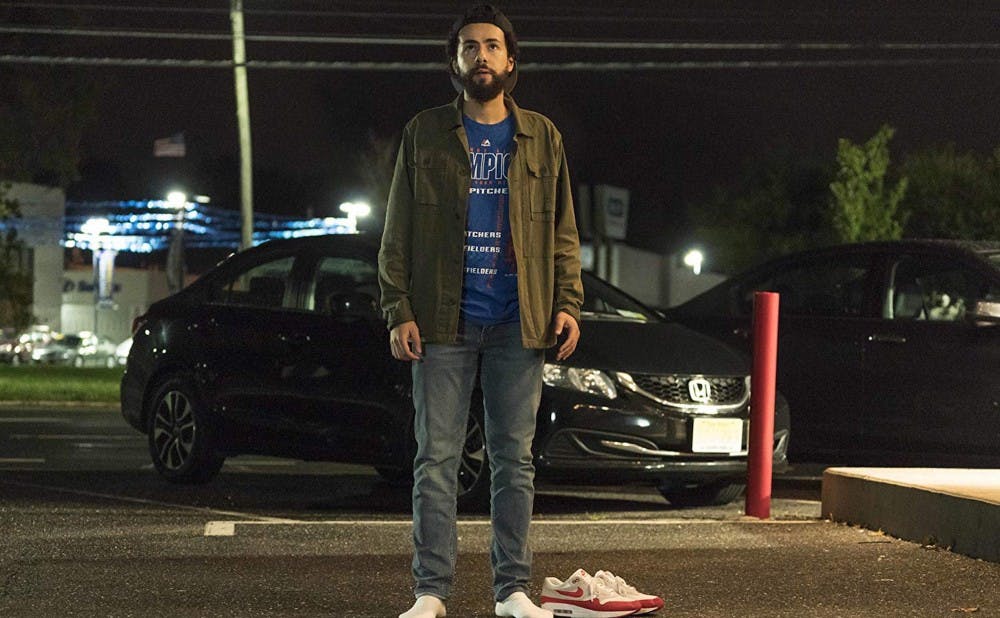“Ramy” has the familiar trappings of any other dramedy about any other millennial: Our protagonist, Ramy (Ramy Youssef, who is also writer, director and co-producer), is a 20-something working at a sinking tech start-up, stumbling through the last chapter of his bildungsroman and trying to figure it all out before he hits his 30s. He spends his days bantering with buddies Ahmed (Dave Merheje) and Mo (Mohammed Amer) and devotes his nights to pulsing dance parties and soon-to-be hook-ups. But interspersed between these slices-of-life akin to “Girls” or “Master of None,” we see Ramy somewhere else: at home in Jersey, where he lives with his very-Arab parents, and at the local masjid, which is as much a refuge as it is a well-worn pillar in his day-to-day life as a Muslim. The series’ first three episodes, which were advance screened last Friday at White Lecture Hall, make it clear that Ramy is Muslim Muslim. He 100% “buys into it,” and he has only some qualms about it.
Although “Ramy” has rightfully been heralded as a welcome glimpse into a community rarely given much, if any, screentime, its significance goes beyond mere positive representation. The few full-fledged characterizations of Muslim millennial identity that do exist either paint a picture of conflict between the stifling culture of immigrant parents and the thrilling fear and freedom of millenial liberality, or entirely curtail any focus on the former entirely. Muslim identity and the parents steeped in it are either a site of strife — as in the case of Kumail Nanjiani’s “The Big Sick” — or they are prodded into a small corner of the larger narrative, as in Aziz Ansari’s “Master of None.” In all of these cases, choosing the route of liberal millennial often involves some negligence of one’s cultural and religious identity, which is either disregarded or allowed to collect dust. This is not to say that these representations are not important and excellent in their own way, but to merely observe that the theme of modern Muslim identity has yet to be cracked open and interrogated in any significant way.
But that’s the topic that “Ramy” has made its driving force, wading up to the neck in a lived experience of identity that is so rich and complex that it’s now a subfield of queer and postcolonial theory. The show is makes it clear within the first few minutes that its main character is more than a diversity token: When a hook-up (Anna Konkle of “PEN15”) exclaims that she thought Ramy was “culturally Muslim like how I’m culturally Jewish,” he admits that no, he’s a real-life believer through and through. His diversity comes with the extra baggage of believing in God.
And it is at this intersection — of East/West, religious/liberal, Islam/modern millennial identity — that Ramy stands, where his embodiment of these supposed opposites is a simultaneous source of existential crises and the occasional glimpse of self-understanding. What the show explores particularly effectively is Ramy’s attempt to maintain a delicate balance between his liberal millennial values and his Egyptian-American Muslim upbringing. Although the series’ promotional materials describe the millennial generation as one that “thinks life has no consequences,” this does not mean that it lacks principles. Ramy’s weight to bear is not a conflict between the wantonness of millenial existence and the traditions of Muslim life; rather, it’s a grappling with the realization that the values of these two groups can conflict at times, and someone who maintains them both will have to learn how to interrogate and square them.
For example, despite his willingness to hook up with white women on the first date, he spurs the sexual advances of a potential Muslim love interest, claiming that he didn’t think “she was like that.” Their comedic almost-sex scene settles on a heavy note as she pummels him with the line, “You put me in some ‘Muslim’ box in your head. I’m supposed to be your wife or the mother of your kids, but I’m not supposed to come.” Ramy is forced to contend with the politics of sexual liberation and his prior belief that only some women can be granted it. Earlier, when he admits to one hook-up that he doesn’t drink, she claims that his concurrent willingness to buy drinks for girls is more “date-rapey” than a gesture of camaraderie.
The principles that Ramy chooses to follow seem at times to be more a matter of convenience than morality. The question of why he is so willing to have premarital sex yet draws the line at drugs or alcohol is a regular nuisance that is frequently brought to bear but that Ramy never seems to resolve. When the morals get sticky, the question of why one does things doesn’t have a firm ground on which to stand. It is at these junctures where “Ramy” shines the most, as bouts of situational comedy come to settle on questions that are important and, as yet, unanswerable. Although several jokes (and even some entire scenes) fail to hit the comedic mark, the show’s all-around earnestness and its commitment to Ramy’s character is enough to make the good parts really good. At the very least, the interspersal of Ramy’s bro banter with friends Mo and Ahmed guarantees a good laugh, indirectly proving that dramedies are very much capable of being quite funny.
“Ramy” is undoubtedly an important TV series, one that is refreshingly relatable for a lot of millennial Muslims (including myself). But its significance is about more than diversity: It’s willing ask aloud the kinds of hard questions that are only buried within communities or the depths of academia. It’s another excellent addition to the ranks of Hulu’s increasingly well-curated original series line-up, and the full series debut this Friday is sure to merit a weekend of bingeing (and some thinking, too).
Get The Chronicle straight to your inbox
Sign up for our weekly newsletter. Cancel at any time.

